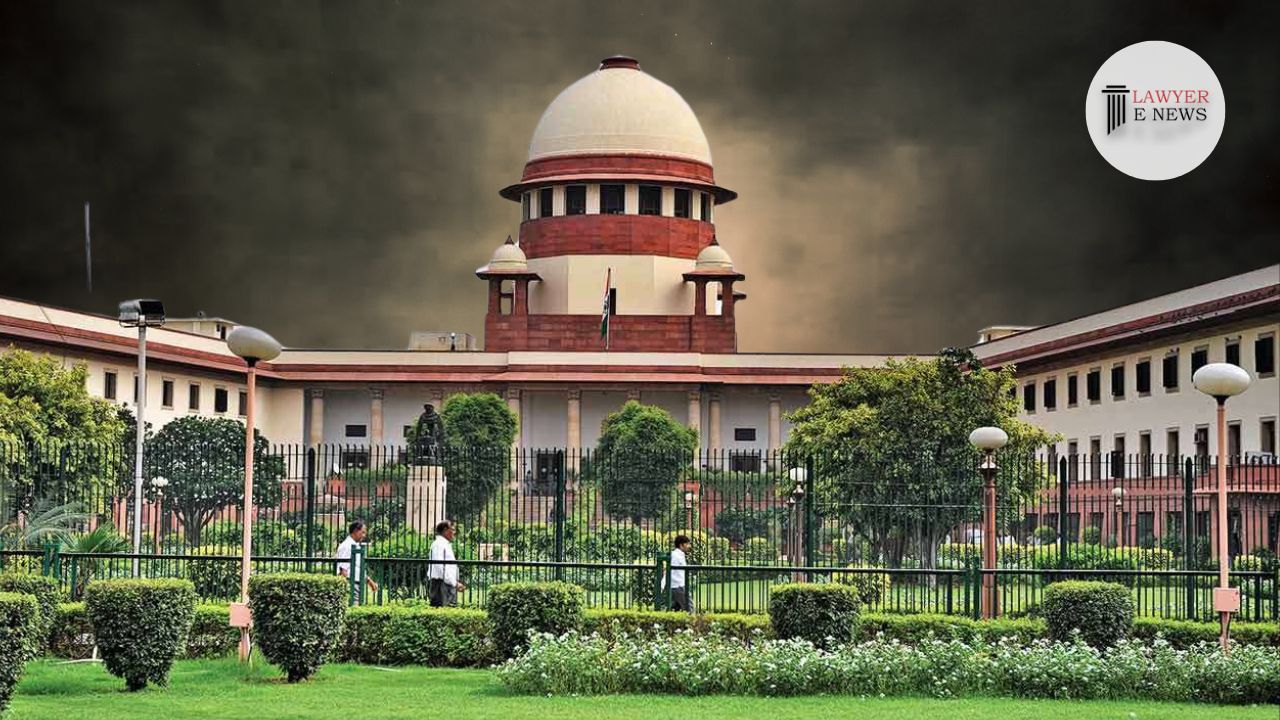-
by Admin
15 February 2026 5:35 AM



In a significant judgment, the Supreme Court has set aside the decisions of the Rajasthan High Court, which had granted partition of a property under the Hindu Succession Act, 1956. The apex court emphasized that possession is a crucial element for a Hindu female or her legal heirs to claim absolute ownership of property under Section 14(1) of the Act. The judgment, delivered by Justices B.R. Gavai and Sandeep Mehta, underscores the necessity of actual or legal possession by the widow to invoke rights under the said provision.
The case originates from a dispute over property inherited within a Hindu Undivided Family (HUF). The property initially belonged to Kishan Lal and was inherited by his two sons, Mangilal and Madho Lal. Following the deaths of Mangilal in 1912 and Madho Lal in 1929 (who died issueless but was survived by his widow, Nandkanwarbai), the property became a subject of litigation.
Kanwarlal, son of Mangilal, executed a will in favor of his son, Mukat Lal, in 1949. After Kanwarlal's death in 1954, the property devolved upon Mukat Lal. Nandkanwarbai, the widow of Madho Lal, adopted Kailash Chand in 1959. This adoption became the basis for Kailash Chand’s claim to the property.
Nandkanwarbai’s initial suit for title and possession was dismissed in 1959, recognizing only her right to maintenance. Mukat Lal's subsequent appeal led to the complete dismissal of Nandkanwarbai’s maintenance claim in 1968. Upon her death in 1972, Kailash Chand was substituted as her legal heir and filed for partition of the property in 1979.
The Supreme Court extensively discussed the pre-requisites under Section 14(1) of the Hindu Succession Act, emphasizing that the Hindu female must have possessed the property to claim it under this provision. Justice Mehta stated, "The essential ingredient of Section 14(1) is possession over the property. Admittedly, the plaintiff was never in possession of the property. The possession was always that of the defendant and therefore Section 14 sub-Section (1) would not be applicable."
The court referred to multiple precedents, including Ram Vishal v. Jagannath and M. Sivadasan v. A. Soudamini, which reinforced that possession coupled with a pre-existing right is essential for converting limited ownership into absolute ownership under Section 14(1). The court noted, “A pre-existing right is a sine qua non for conferment of a full ownership under Section 14 of the Hindu Succession Act.”
The court found that both the Single Judge and Division Bench of the High Court had failed to consider that neither Nandkanwarbai nor Kailash Chand were ever in possession of the property. The judgments had erroneously concluded that Kailash Chand, as the adopted son, could claim partition without proving possession by his predecessor, Nandkanwarbai.
The Supreme Court’s decision has crucial implications for the interpretation of the Hindu Succession Act, particularly regarding the possession and inheritance rights of Hindu widows and their legal heirs. By reversing the lower courts’ decisions, the apex court has reaffirmed that possession is indispensable for claiming absolute ownership of property under Section 14(1). This judgment will likely influence future cases involving claims to property under the Hindu Succession Act, setting a stringent standard for the requirement of possession.
Date of Decision: May 16, 2024
Mukatlal vs. Kailash Chand (D) Through LRS. and Others
